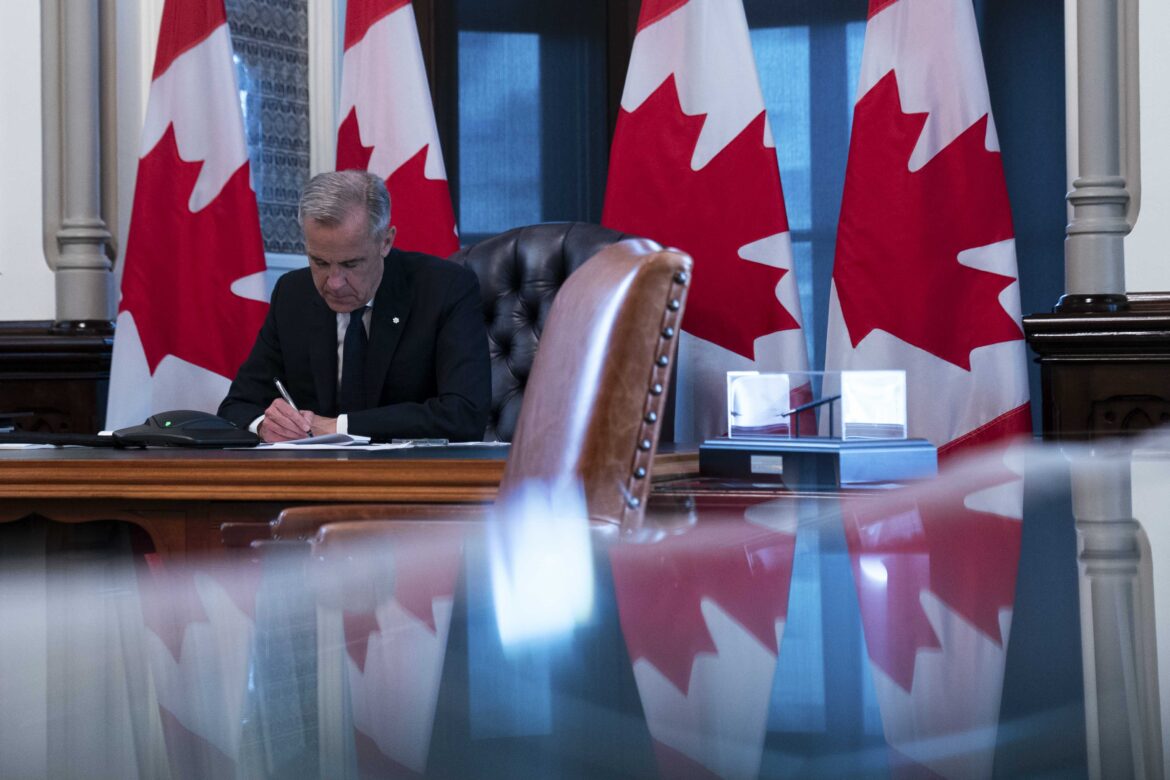368

Prime Minister Mark Carney speaks on the phone with the Prime Minister of Spain, Pedro Sánchez, from the Prime Minister's office in west block on Parliament Hill in Ottawa on May 14, 2025. Photo: Lars Hagberg/PMO




